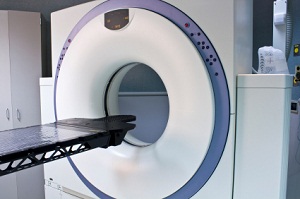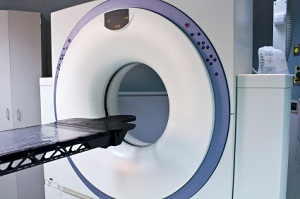Career Profile: Biomedical Equipment Technician

 Why Is Biomedical Equipment Technology a Job of Tomorrow?
Why Is Biomedical Equipment Technology a Job of Tomorrow?
As the health care sector expands to meet the needs of Americans, biomedical equipment technicians will see a surge in importance and demand. Medical technology is an integral part of any health care facility, and biomedical equipment technicians keep it functioning accurately, safely and efficiently. Employment positions for biomedical equipment technicians are expected to grow 22 percent, a faster rate than the average for all occupations, according to the Bureau of Labor Statistics. The average annual salary for biomedical equipment technicians is $40,580.
What Does a Biomedical Equipment Technician Do?
Biomedical equipment technicians maintain the delicate machinery found in health care facilities. These devices include heart monitors, ventilators and PET/CT scanners. As medical technology becomes more advanced, experienced biomedical equipment technicians will become even more sought after. The technicians do not only repair equipment, but also install machinery, train medical staff on its uses and calibrate the products to ensure that they produce accurate readings. The occupation is unlikely to be outsourced, as the work is hands-on and often requires immediate attention. For example, if a machine breaks during use, the technician would be needed on-site right away to repair it. The bulk of the technician's responsibilities, however, are in preventive maintenance to ensure that the equipment will remain functional with regular use, according to Spokane Community College.
What Kind of Training Do I Need to Become a Biomedical Equipment Technician?
Biomedical equipment technicians need at least a two-year associate degree in applied science. This allows them to gain the fundamental knowledge needed to work with the complicated instruments found in health care. After completing the associate program, most prospective biomedical equipment technicians earn professional certification by passing a national standard exam. The professional certification shows employers that the technician is nationally recognized as a competent expert in medical technology maintenance.
Other Jobs in Business
Job Opportunities
- Anesthesiologist
- Athletic Trainer
- Audiologist
- Biomedical Equipment Technician
- Cardiovascular Technician
- Chiropractor
- Clinical Nurse Specialist
- Clinical Psychologist
- Dental Assistant
- Emergency Paramedic
- Family and Marriage Therapist
- Gynecologist
- Health Information Technician
- Health Policy Specialist
- Health Services Administrator
- Long-Term Care Administrator
- Massage Therapist
- Medical Assistant
- Medical Scientist
- Mental Health Counselor
- Nurse Administrator
- Nurse Anesthetist
- Nurse Midwife
- Nurse Practitioner
- Obstetrician
- Occupational Therapist
- Optometrist
- Pharmaceutical Sales
- Pharmacy Technician
- Physical Therapist
- Physician
- Physician Assistant
- Podiatrist
- Psychiatrist
- Substance Abuse and Behavioral Disorder Counselor
- Surgeon
- Ultrasound Technician
- Veterinarian